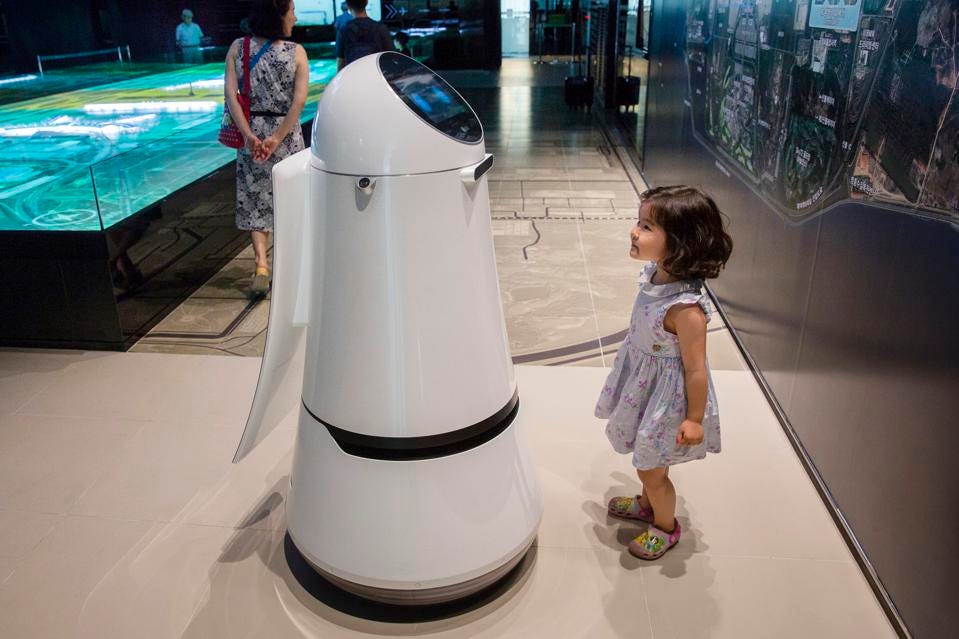Artificial intelligence is today’s most discussed and debated technology, generating widespread adulation and anxiety, and significant government and business interest and investments. But six years after DeepMind’s AlphaGo defeated a Go champion, countless research papers showing AI’s superior performance over humans in a variety of tasks, and numerous surveys reporting rapid adoption, what is the actual business impact of AI?
Copyright: forbes.com – “What Is AI? Understanding The Real-World Impact Of Artificial Intelligence”
 “2021 was the year that AI went from an emerging technology to a mature technology… that has real-world impact, both positive and negative,” declared the 2022 AI Index Report. The 5th instalment of the index measures the growing impact of AI in a number of ways, including private investment in AI, the number of AI patents filed, and the number of bills related to AI that were passed into law in legislatures of 25 countries around the world.
“2021 was the year that AI went from an emerging technology to a mature technology… that has real-world impact, both positive and negative,” declared the 2022 AI Index Report. The 5th instalment of the index measures the growing impact of AI in a number of ways, including private investment in AI, the number of AI patents filed, and the number of bills related to AI that were passed into law in legislatures of 25 countries around the world.
There is nothing in the report, however, about “real-world impact” as I would define it—measurably successful, long-lasting and significant deployments of AI. There is also no definition of “AI” in the report.
Going back to the first instalment of the AI Index report, published in 2017, still does not yield a definition of what the report is all about. But the goal of the report is stated upfront: “…the field of AI is still evolving rapidly and even experts have a hard time understanding and tracking progress across the field. Without the relevant data for reasoning about the state of AI technology, we are essentially ‘flying blind’ in our conversations and decision-making related to AI.”
“Flying blind” is a good description, in my opinion, of gathering data about something you don’t define.
The 2017 report was “created and launched as a project of the One Hundred Year Study on AI at Stanford University (AI100),” released in 2016. That study’s first section did ask the question “what is artificial intelligence?” only to provide the traditional circular definition that AI is what makes machines intelligent, and that intelligence is the “quality that enables an entity to function appropriately and with foresight in its environment.”
Thank you for reading this post, don't forget to subscribe to our AI NAVIGATOR!
So the very first computers (popularly called “Giant Brains”) were “intelligent” because they could calculate, even faster than humans? The One Hundred Year Study answers “Although our broad interpretation places the calculator within the intelligence spectrum…the frontier of AI has moved far ahead and functions of the calculator are only one among the millions that today’s smartphones can perform.” In other words, anything a computer did in the past or does today is “AI.”[…]
Read more: www.forbes.com


Artificial intelligence is today’s most discussed and debated technology, generating widespread adulation and anxiety, and significant government and business interest and investments. But six years after DeepMind’s AlphaGo defeated a Go champion, countless research papers showing AI’s superior performance over humans in a variety of tasks, and numerous surveys reporting rapid adoption, what is the actual business impact of AI?
Copyright: forbes.com – “What Is AI? Understanding The Real-World Impact Of Artificial Intelligence”
There is nothing in the report, however, about “real-world impact” as I would define it—measurably successful, long-lasting and significant deployments of AI. There is also no definition of “AI” in the report.
Going back to the first instalment of the AI Index report, published in 2017, still does not yield a definition of what the report is all about. But the goal of the report is stated upfront: “…the field of AI is still evolving rapidly and even experts have a hard time understanding and tracking progress across the field. Without the relevant data for reasoning about the state of AI technology, we are essentially ‘flying blind’ in our conversations and decision-making related to AI.”
“Flying blind” is a good description, in my opinion, of gathering data about something you don’t define.
The 2017 report was “created and launched as a project of the One Hundred Year Study on AI at Stanford University (AI100),” released in 2016. That study’s first section did ask the question “what is artificial intelligence?” only to provide the traditional circular definition that AI is what makes machines intelligent, and that intelligence is the “quality that enables an entity to function appropriately and with foresight in its environment.”
Thank you for reading this post, don't forget to subscribe to our AI NAVIGATOR!
So the very first computers (popularly called “Giant Brains”) were “intelligent” because they could calculate, even faster than humans? The One Hundred Year Study answers “Although our broad interpretation places the calculator within the intelligence spectrum…the frontier of AI has moved far ahead and functions of the calculator are only one among the millions that today’s smartphones can perform.” In other words, anything a computer did in the past or does today is “AI.”[…]
Read more: www.forbes.com
Share this: